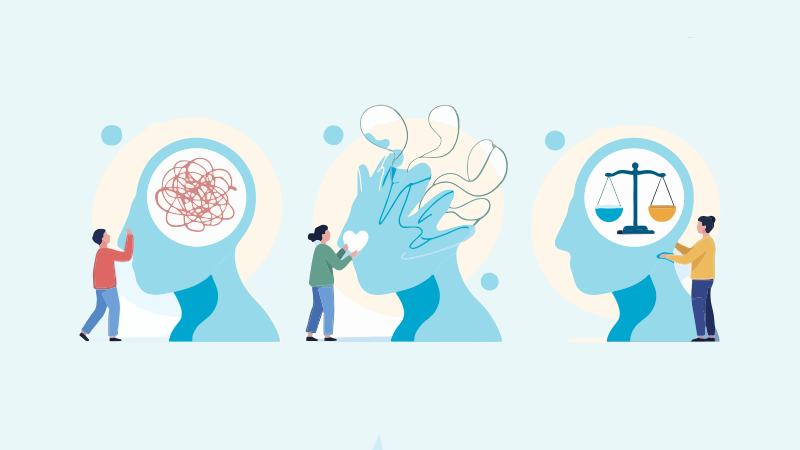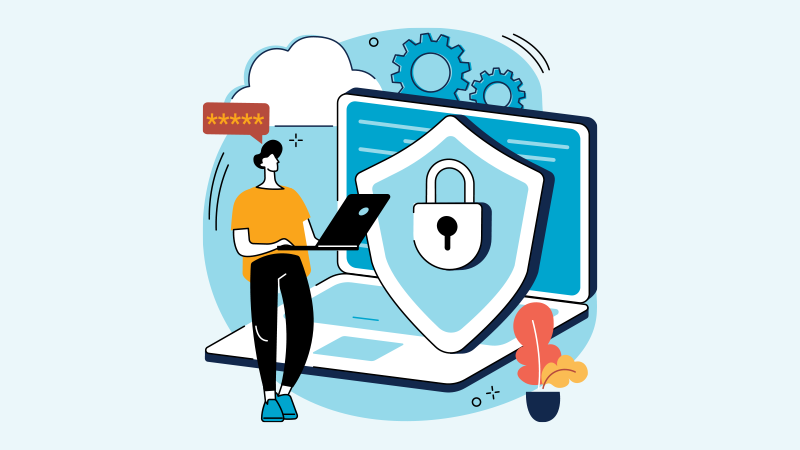
A personal note from Mary Ellen Murrah, Vista's Chief Strategy & Marketing Officer:
I met Kate when we both participated in Jackie Insinger’s Spark Brilliance program, and like many of the best connections in life, our friendship grew from shared vulnerability, deep conversations, and a mutual desire to lead with intention. When Kate was attacked by her neighbor’s foster dog (an incredibly traumatic event that left her with permanent scarring and a long road to recovery,) I watched her navigate not only physical and emotional healing, but also the legal process that followed. As someone who works closely with personal injury law firms, it was heartbreaking to see how the very system meant to support her added to her pain.
Kate’s story is a powerful reminder of the human side of what our clients do every day. When communication is inconsistent, expectations aren’t set, and empathy is missing, the impact is deeply personal. Her experience underscores why we at Vista are so passionate about coaching firms to prioritize client experience and keep clients at the heart of all operational workflows and decisions. Behind every intake form is a person whose life has been upended, and how you show up for them matters more than you may ever know.
I am a dog lover, and I walk my own dog daily in my neighborhood. I’ve gotten to know the other folks with four-legged friends on these walks, and it’s been a chance to bond with and get to know some of my neighbors. My next-door neighbor had recently lost her sweet, older, furry companion, and I was surprised when she came home a few days after that loss with a foster dog. It wasn’t just any foster dog. It was an 85-pound Pitbull mix with an unknown past and some obvious behavioral issues. I saw her struggling with training him in the yard, and I met the dog a few times, always offering a hand and a pat. Ultimately, I thought this challenge would be good for my neighbor as she navigated her grief.
One afternoon, I was walking past her house when she was outside with the dog. Being friendly, I asked if I could say hello. She said, "of course." When I bent down slightly to let the dog sniff my hand, it suddenly and without warning lunged at my face, clamped down on my left cheek, and pulled me to the ground with such force that it tore my jeans and scraped my knee.
It was horrific, shocking, and completely unforeseen. I screamed for her to call 911 because I knew I was badly mauled. At the hospital, the plastic surgeon looked at the damage and said something I will never forget: "I am going to tell you something that you need to hear and understand: Your face will never be the same."
He was right. For 59 years, I had seen a person I recognized in the mirror. Since that day, the face looking back is not one I know. It’s the face of a person with a massive wound sewn back into place. My smile is not the same. My cheek is numb. The trauma has affected me physically, emotionally, and mentally. The brain fog, the sleepless nights, the feelings of isolation and insecurity...it all became my new reality. Every time I had to retell the story, it was retraumatizing.
About a week after the attack, I began calling personal injury attorneys. I had never had to do this before. What did I know? I just looked them up online and searched for firms who specialized in dog bites. This is where my trauma was compounded by the very people I hoped would help me.
Each time I called a firm, an intake specialist led me through a series of questions. By the third call, I was exhausted. I was tired of telling my story, tired of sending photos of my badly mauled face to a stranger's cell phone, and tired of feeling like just another potential case file.
One intake specialist was clearly working from home; I could hear kids in the background while I recounted the most horrific event of my life with an ice pack on my face. It felt intrusive when they asked for photos to be sent to their personal email or phone. Did I really feel comfortable sending these deeply personal images to someone I didn’t even know?
Then came the rejections. One firm, one of the big ones, sent a rejection via text message from a principal attorney. It felt cold and insulting. Another firm never bothered to call back at all. The last one sent a form email.
I understand that firms have different criteria for the cases they take. Maybe there wasn't enough money in it for them. Perhaps my injury wasn't horrific enough. I get it. But the delivery of that "no" was what caused more pain. When someone comes to you at their most vulnerable, a cold text message rejection after sharing a traumatic experience feels like a failure of human decency. It adds another layer of rejection and self-doubt to an already traumatized person.
I eventually signed with an attorney I met through a personal connection. He didn't specialize in personal injury, but he took my case. It quickly became clear that this was another mistake.
He barely kept in touch. He took long vacations over the summer while I was desperately trying to find out what was going on with my case. My calls and emails went unanswered for long stretches of time. I was left in the dark, my anxiety growing with every passing day of silence. I came to him scared, harmed, in pain, and worried. That’s a heavy responsibility, and I felt completely abandoned.
I reached out to Mary Ellen at Vista (because I knew she worked with law firms) to ask if my experience was normal and if my expectations were just too high. Her answer was no. In fact, when I shared photos of my injuries, let her know about my surgeries and treatment, and explained my experience with my attorney, she was upset. She explained how personal injury cases typically work, what the demand and negotiation process looks like, and asked me many questions about my experiences so far. I learned more from that conversation than in any with my attorney.
We ultimately settled for a fraction of what we asked for, with no negotiation. I can’t help but feel that a more engaged attorney, a specialist with a team, could have achieved a more meaningful sum that would have helped me immeasurably. I’m a single person living paycheck to paycheck, and the financial strain was just as real as the physical and emotional scars. I can't go back in time, but the experience taught me so much.
Kate’s story is uncomfortable. If you’re a PI firm owner, it might even make you squirm a little. We've seen some things in our time consulting with firms, and processes like these are more common than you'd think. The good news is that every point of failure in her journey offers a clear, actionable lesson for your firm.
The intake department is your firm’s heart. It is the very first human interaction a potential client has with your brand. That person on the other end of the line is scared, in pain, and looking for a lifeline.
The biggest complaint clients have about lawyers is a lack of communication. Kate’s experience of being ignored for weeks on end is, unfortunately, an industry standard in some circles. In the absence of information, clients will assume the worst.
When a person is traumatized, their ability to function is compromised. They are forgetful, distracted, and emotionally fragile. They don’t just need a legal expert; they need a guide.
Your role extends beyond the courtroom. It involves managing client emotions, providing reassurance, and being a stable presence in a time of chaos. This is the part of the job they don’t teach in law school, but it’s where great firms separate themselves from the rest. Understand that you and your team are managing a human being whose life has been turned upside down, not just a case file.
Kate’s story is a gift. It’s a raw, honest look behind the curtain at the client experience. Her pain, frustration, and disappointment offer a roadmap for how we can all do better. The firms that will thrive in the future are not necessarily the ones with the biggest verdicts, but the ones that understand that the client experience is everything. They are the ones who know how to answer the call with compassion, communicate with intention, and guide their clients with a steady hand. They are the ones who remember there is a person like Kate behind every call.
Kate P. is a media professional working in Baltimore, MD.



